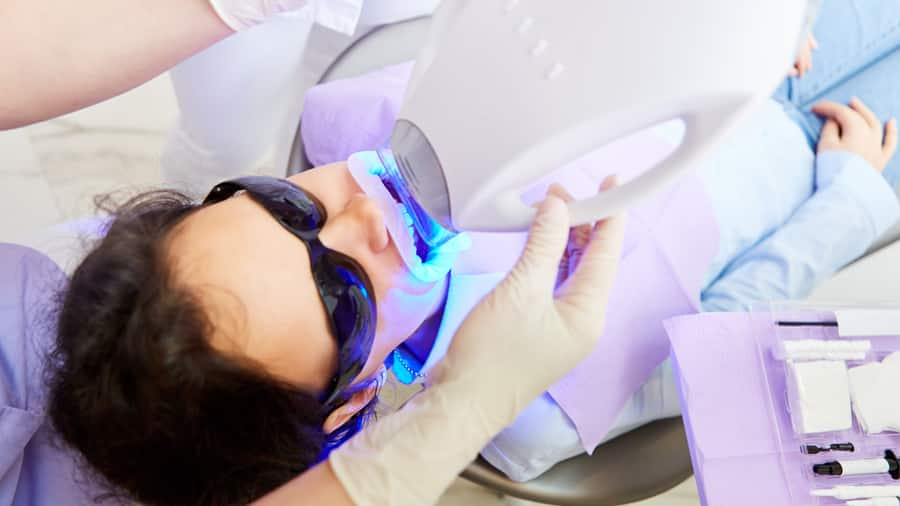Teeth staining is a widespread and enduring issue for numerous individuals, with smoking being a leading cause. The outcome is a visibly unappealing and rather embarrassing discoloration of the teeth, attributed to the nicotine and tar found in cigarettes.

Removing Smoking Stains from Teeth
Medically Reviewed By Colgate Global Scientific Communications
Types of teeth stains:
The transformation in your teeth's colour can be quite subtle and often occurs gradually. Even if you practise a good oral care routine, your teeth may become stained over time. As we age, these changes become more noticeable. One contributing factor of yellow teeth is the build up of stains .
- Extrinsic Stains: Extrinsic teeth stains discolor your enamel, the outer layer of each tooth. Your enamel protects the softer part of the tooth that's underneath (dentin). Even though enamel is the hardest part of the tooth, it comes in contact with everything you put in your mouth – be it berries, red wine, or nicotine. Over time, this contact leads to your enamel absorbing some of the colors of the items you consume, causing a stain.
- Intrinsic Stains: These stains happen when dentin, the sensitive layer underneath the enamel becomes stained. Dentin is naturally darker and more yellow than enamel. Dentin is exposed when the enamel thins out or erodes from life's wear-and-tear or inadequate oral hygiene. Intrinsic stains are a little tougher to remove, but not to worry, you can do it!
- Age-Related Stains: It's only natural that as you get older, your body changes. Your dentin darkens and your enamel thins. The combination causes teeth discoloration that, unfortunately, is out of your control – no matter how diligent you've been with your oral hygiene.
What Are the Effects of Smoking on Oral Health?
Chances are this isn't the first time you've heard this – smoking is bad for you. According to a WHO report, it's one of the significant causes of death in India. It can lead to a list of diseases and be problematic for almost every organ in your body.
Smoking contributes to:
- Bad breath
- Teeth discoloration
- Tooth decay and gum infections
- Periodontal disease
- Potential tooth loss
- Increased risk of oral cancer.
If you smoke and have noticed any adverse effects like decreased taste, bad breath, or teeth stains, you may be wondering what you can do to treat or reverse these effects. The best thing you can do for your oral health is to quit smoking immediately.
If you've already quit, we have some action items for you that can help with smoking stains removal from teeth, care for your gums, and improve oral health.
Remedies to remove smoking stains from teeth
The tar and nicotine present in cigarettes are well-known for causing discoloration on teeth. When smoke particles mix with saliva and adhere to the tooth enamel, they form tough-to-remove stains. Over time, these stains can become more pronounced and resistant to regular brushing and flossing. Here are some ways to remove smoking stains from teeth:
- Professional Cleaning: Regular dental cleanings by a hygienist can effectively remove surface stains and tartar buildup that brushing alone can't eliminate
- Teeth Whitening Procedures: Dentists offer various whitening treatments, such as in-office whitening using bleaching agents or take-home kits with custom trays. These treatments can significantly lighten deeper stains.
- Rinse your mouth: Rinsing the mouth with water after smoking can assist in minimizing some of the resulting stains. Rinsing aids in removing bacteria and substances that contribute to enamel discoloration, offering a way to combat potential staining.
- Veneers or Bonding: In severe cases where stains are deeply set and resistant to other treatments, veneers or bonding can be considered. Veneers are thin shells placed over the teeth, while bonding involves applying a tooth-colored resin to cover stains.
- Say Cheese! : Dairy items contain lactic acid, known for its role in decreasing periodontal diseases. Apart from safeguarding and enhancing tooth enamel, hard cheeses, like cheddar, exhibit superior teeth-cleaning and whitening abilities. This is due to their effectiveness in removing additional nutritional residues.
Learn more about whitening products
Preventive Measures for Long-Term Oral Health
- Quit Smoking: The most effective way to prevent further staining and improve oral health is to stop smoking altogether.
- Regular Dental Care: Maintain good oral hygiene habits, including brushing at least twice a day, flossing daily, and scheduling regular dental check-ups.
- Watch Your Diet: Limit foods and beverages known to stain teeth, such as coffee, tea, red wine, and berries.
- Use a Straw: When drinking beverages that may cause staining, using a straw can reduce direct contact with your teeth.
Final Thoughts
Quitting smoking can be challenging. But when you consider that the alternative isn't just bad oral hygiene but potentially life-threatening conditions as well – the effort will be well worth your while. If you've already quit, we commend you. Now, by practicing good oral hygiene, and with the help of dental professionals, you can easily remove smoking stains from teeth and also make the adverse effects of tobacco products a thing that disappears into the past like a puff of smoke.
Frequently Asked Questions:
Are smoking stains on teeth permanent?
Tobacco stains on teeth can be difficult to remove since they accumulate over years of smoking. However, they are not permanent and can be effectively treated with professional teeth whitening.
Will smoking after teeth whitening stain teeth?
Smoking continuously after teeth whitening may cause the teeth to become stained again. The smoke from cigarettes contains chemicals that can eventually discolor the teeth.
Can smoking cause holes in your teeth?
Smoking supports bacteria, plaque, and tartar build-up, leading to cavities, decay, and even tooth loss.
Are e-cigarettes better for dental health?
Although e-cigarettes don't generate smoke, the vapor contains nicotine. Furthermore, e-cigarettes contain various other chemicals in smaller quantities than traditional cigarettes, which are not good for both the body and oral health.





